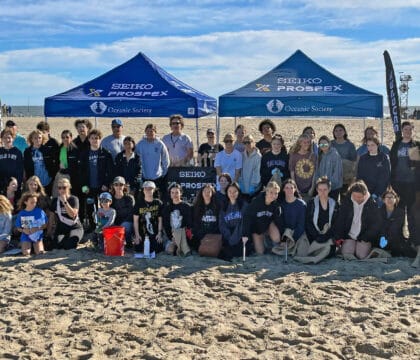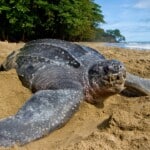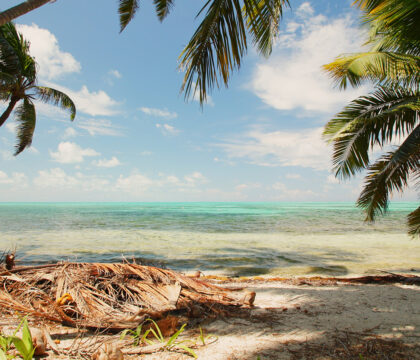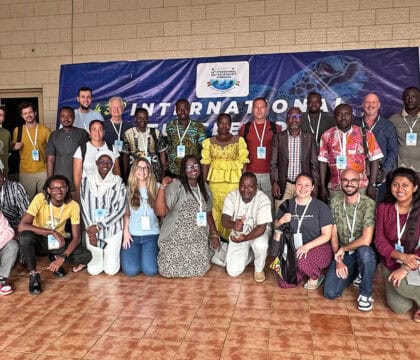March 21, 2014 • Travel Ideas
Oceanic Society is a pioneer in volunteer vacations (aka voluntourism), having led ocean-oriented volunteer excursions worldwide for more than 40 years. These volunteer vacations match passionate travelers with research and conservation projects in need of manpower and funding, and last anywhere from a few days to a few weeks. During their stay, volunteer participants directly contribute to the project in ways that are easy to see and acknowledge—such as through new data collected, resources provided, and specific tasks accomplished. But the long-term impact—the legacy—of those volunteer contributions is much harder to track, and as a result is often overlooked or unacknowledged. We are often asked: “What is the impact of my volunteer vacation?”
In Belize we have a “yardstick” by which to measure the volunteer legacy. Oceanic Society has conducted dolphin research in the region since 1992, and after more than 20 years of volunteer supported research, here is what we see as outcomes of our dolphin research volunteer program:
- Four master’s degree candidates completed their dolphin research and went on to graduate. Due to their success many of these individuals went on to finish PhDs as well, and they continue their contributions to marine science today.
- Multiple master’s theses and peer-reviewed papers have been published, providing a scientific base for our current master’s students and volunteers to ask better and more focused research questions about the dolphin and marine mammal populations in Turneffe and in Belize, generally.
- This collection of information provided valuable and factual support for the establishment of the Turneffe Atoll Marine Reserve, officially designated in 2012 as Belize’s largest and most diverse marine reserve.
- Our research was heavily cited in the Turneffe Atoll Marine Reserve Management Plan, in which it was used to guide the zoning of areas within the reserve.
- All of the master’s students (now scientists) that have participated in this volunteer program have also learned from their experience. Having to communicate what they do in the field to volunteers has made them better communicators of science and conservation—desperately needed skills in our field.
Beyond these more tangible outcomes, I sometimes think that connecting travelers to a field setting and engaging them in exploring research questions are some of our most important results. Knowing that we are building a growing constituency of knowledgeable ocean advocates is highly rewarding. Volunteers go home after the experience having seen first-hand the value of science in understanding and managing conservation challenges. These same individuals also gain a realistic appreciation of just how difficult it can be to answer a seemingly simple ecological question in the field. I believe these experiences will serve to better connect them to challenges in their own backyard and give them a greater appreciation of how to support conservation and protect the environments they are passionate about.
So please come out and participate in these valuable volunteer programs. And as you depart from your intense field experience, know that you have become part of a legacy of conservation success. You are now one of many people that have connected the dots of data over the years. These “dots,” once connected over many people and many years, lead to outcomes much greater than we might ever have dreamed or accomplished alone.




